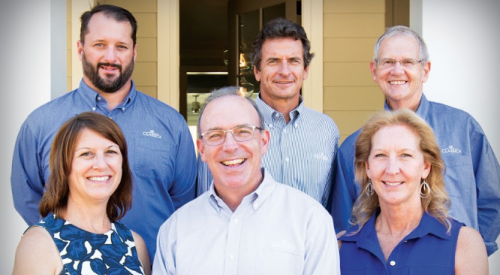|
Heather McCune, Editor in Chief
|
In nearly every office in every industry across the land, the planning process for 2005 rages on. Common questions asked no matter the business include:
- What did we do this year that bears repeating next year?
- How has our market changed?
- Has our customer changed?
- Who is our competition?
- What makes us different?
Are your questions the same or different? No matter what the answer, I suggest every builder add one new question to the 2004 planning process:
"What are we willing to do that our competition won't do?"
Joe Calloway challenged attendees at Professional Builder's annual BENCHMARK conference with this question. "Instead of focusing on becoming a leader in your category, why not create a different category and be the only one in it?" he asked. The audience took a collective breath and to a person each was thinking how difficult this is in my business, in my market, in an industry as competitive as new residential construction.
Anticipating just such a reaction, Calloway answered his own question:
"Extraordinary companies create their own categories by doing what no one else does. They get to know the customer better than any one else in the business and connect with that customer better than anyone else can. They transcend commodity by offering more than just a product. They defy comparison by doing what their competitors can't or won't do."
Stop for a minute and dissect Calloway's answer. Is product what sets these companies apart? No. Is process what sets these companies apart? No. Is it people that set extraordinary companies apart? No. What sets these organizations apart - and above - their competitors: their unbreakable connection with the customer.
In home building you can create that connection many ways. Two builders that have gone beyond competition in similar yet different ways are Bigelow Homes in suburban Chicago and Simonini Builders in Charlotte, N.C.
The business models at both Bigelow and Simonini involve significant investment and risk. To create the community elements to attract buyers requires a huge cash outlay long before the models are built or homes can be sold. Ask Jamie Bigelow or Simonini's Bill Saint if the investment pays off and each smiles broadly. No words needed.
Each company connects with its customer through a product offering unique to the marketplace. Bigelow wows Chicagoland new home buyers with affordable, highly energy-efficient homes in a TND neighborhood complete with a corner store, cafe, community Christmas tree and more - all the elements of neighborhood other builders in the market can't (or won't) do at a comparable price point.
In Charlotte's robust and competitive new home market, Simonini Builders stands out for its design leadership and completely custom approach to the building process. While neither of these attributes is necessarily unique or beyond competition, Simonini creates its own category in the way it blends the two. The company's newest blend: Heydon Hall, a luxury community modeled after an English estate in one of Charlotte's most sought-after areas. This entirely new neighborhood delivers what buyers can't find in any other new home subdivision: community architecture and amenities that create an inspired sense of place combined with a one-of-a-kind floorplan.
At the other end of the "category of one" perspective is 2005 National Housing Quality Award Gold winner Pulte Homes. As the first national builder to win the Gold Award in program history, Pulte competes head to head on product in 27 states and 45 markets. Where this high volume home builder differentiates itself from the many competitors is in the relationships its 11,000 employees form with homebuyers. National vice president of customer service Erik Pekarski defines it this way:
"Customer delight is our standard, and will not be sacrificed. In dealing with our customers, our trade partners and each other, humility is expected."
Not willing to leave definitions of customer delight and humility to individual interpretation, Pulte teaches each associate the right meaning in a comprehensive orientation program. Day to day reinforcement comes from mentors that are assigned to each new hire.
Become a category of one company in 2005. Can you think of a better goal?
Heather McCune
Editor-in-Chief
630.288.8190
hmccune@reedbusiness.com












